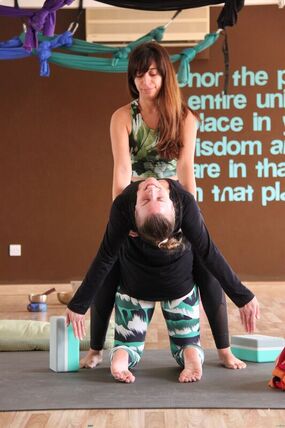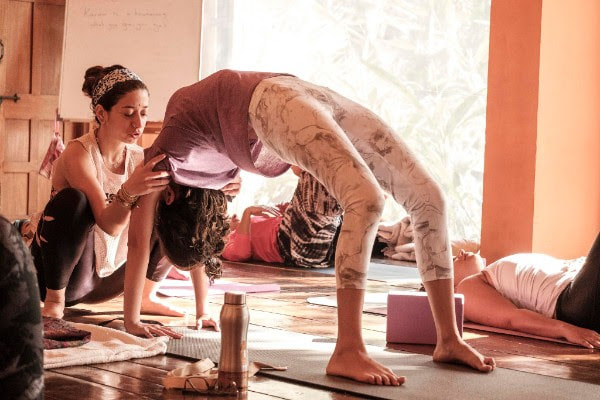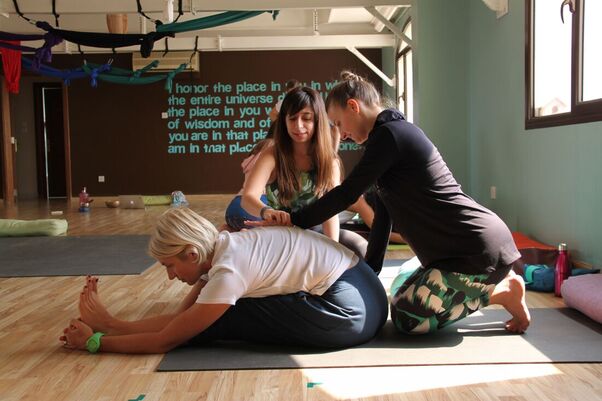 Each one of us has a trigger. Some people feel sad when they feel let down, others feel angry when they feel controlled, other may feel anxiety when they feel abandoned and so on. You can mix and match the triggers with the reactions and the possibilities are endless. The fact that both the triggers and reactions are different means that the trigger has more to do with the person that is triggered rather than the person who is perceived to trigger. It simply means that we have all taken parts of our pain stories from the past and made them a part of our current identity. This false identity has been created to protect us from future threat of similar pain. What we ended up with is a mind that imagines those triggers. It fashions scenarios of a similar sorts carried on in the future with different people, at different times and in different settings. This imagination has made us highly sensitive, and at times even paranoid, of ever coming in contact with those triggers. To sheild us from this possible, potential and not probable pain, we have built walls around our hearts. But when we build walls around our hearts nothing comes in, and nothing goes out. Yet we long to feel complete, so we seek in others to make us feel secure, accepted, respected and so on. When we meet someone who can fill the "gap" of where we have closed our hearts we love and grow attached. When this same person shows the slightest sign of "taking" this feeling we crave away we condemn, judge and might even hate. Remaining open is the only way out. Realising that the part of us that is hurt is the scared part of us that can be reassured and healed. Knowing that closing is a price too high to pay for false protection, even from the deepest of pains. Our nature is open and loving, anything away from that will be more painful than any experience can bring us.
0 Comments
 We make assumptions. All. The. Time. Some assumptions are reasonable, helpful. They help us navigate through life in a way that is practical and understandable. And many assumptions we make are designed to make us feel miserable. When we assume that someone behaved in a way that is dismissive towards us because they don't care about us, that assumption hurts us. When we assume that we will not been given the opportunities in life that helps us achieve our potential, that assumption holds us back from trying. When we assume that our talent doesn't matter, we don't grow it. When we assume that someone is not behaving in a loving way towards us because we are unworthy of their love, our self esteem is affected and so on. Let's be clear, pessimistic assumptions are not more realistic. They are the cynical and easy. Those assumptions are lies. And even if they were true they would be true in a very limited way, or limited to a time or a person. Those assumptions are not facts. We cannot take them seriously. Although it is always better to seek the truth, to ask better questions, that is not always possible. So I am here to propose that we begin to make better assumptions. Assumptions that make us happier. Assumptions that might be as big of a lie as the cynical assumptions and yet they make us feel better. Can I assume that a dismissive behaviour was because that person is dealing with a crisis? Or that opportunities are on the way? That my talents will change lives? That someone is not loving because they had not been loved? If you will lie to yourself anyway, make it a happy lie.  As human beings, we have an internal compass that judges actions as "right" and "wrong". That judgement of action is necessary to keep us aligned with our nature of peace, joy and love. We get lost when this compass stops judging the action and starts judging the person. We confuse mistakes with the value of the person (us or others), deeming someone worthy or unworthy based on the number and size of mistakes they have made. This idea of worthiness extends not only to how we treat ourselves or people (how much attention, love, time or even effort we put into the relationship) but also the blessings we believe that (we or) that person is worthy of. Having transformed radically through this practice, some of my friends often said to me "you just want it all, don't you?". And my answer is "yes, I do". This is a revolutionary answer from someone who spent most of her young adult life loathing herself. I felt unworthy of anything good happening to me and when it did, I subconsciously rejected it, feeling uncomfortable in being blessed when I clearly did not deserve it because to me, I had made mistakes and was now unworthy! Being a mother taught me that this was not true. My love for my daughter and my desire for her to receive blessings does not depend on how well she behaved that day. And if the love of a mother is a micro version of the love of God then how can God judge us or withdraw his blessings if He loved us? The way I see it is that our mistakes do not cause God to judge us, or deem us unworthy. Our inability to love ourselves through our mistakes do. The number of prayers, meditations and hail Mary's do not determine how worthy we are of spiritual awakening. Our own understanding of spirituality does. And if God is Love then spirituality is the ability to love. And how can we love when we are busy judging ourselves, and therefore others, as unworthy. May this year bring you the peace you desire and the love you deserve.  A question I get asked often is: I am really trying to remain positive, loving and compassionate but I am surrounded by violent, negative and judgemental people. What can I do? And my answer is always the same. Committing to being a light worker is not a temporary display of grace subjective to how "good" things are around us. It is rather a dedicated choice we make especially in the most difficult of situations. This choice remains regardless of the many objections that come from the mind. The Yoga Sutras say that there is a four fold remedy that ensures the success of the aspirant on the spiritual path. Those remedies are: Maitri: friendliness to those we find easy to love Karuna: compassion towards those afflicted Mudita: delight at the good fortune of others and Upeksa: disregard towards the faults of others Upeksha is key. When the world around us is chaotic, when the people around us are unable to be their best selves, we make a choice of raising our consciousness even higher. When we are in uplifted states of being, we are unable to judge, condemn, isolate or disconnect from those around us. When we take good care of our wellbeing we become understanding, patient, inclusive and welcoming. I was driving down a very busy highway one afternoon, and a bird was flying pretty low. My car was fast approaching its fragile body, I carried the terror of hitting it in my heart. A second before getting there, the bird flapped its wings and simply rose higher. And there it was: so simple and yet so clear. All we have to do when the chaos of so many minds around us threaten to kill the delicate fragility of the state of balance, all we have to do is go a little higher.  Why are we here? Is a question I still have not found a concrete answer to. I believe in a force, an intelligence that created us. Call that force God or love or Allah. I don't know why that force created us. An answer that I received was that God created us because He loves us. But if that was the only reason wouldn't He have made us in a way that our experience was free of suffering? The other answer I got was that God created us to enjoy us, just like a mother has children knowing that they would suffer. But that seemed like a cruel answer for an all encompassing, all loving God. And the third answer I got is that we were created to help one another. Which of course gives rise to two questions: 1. If God had not created any of us then there would be no help to be give and 2. Why doesn't God do it Himself? The first question I still need an answer to, but as for the second, here's my theory: If God solved all problems for us He would be like a "let me do it for you" parent. We would be the spoiled children who never learned to tie their shoe. We would not have built the resilience to deal with life's challenges nor the compassion to understand another's pain. We would not be able to heal through the service of others, enjoy the connection felt through both giving and receiving nor truly experience of our oneness.  I just came back from a silent retreat in India. That has raised a few eyebrows. When I told my friends I will spend 10 days in silence, the first question was "what will you do?", followed by "why?", and "but you can use your phone right?" and finally "have you lost your mind?" The answers of course were I will spend ten or more hours each day meditating. I will not be reading, talking, writing, exercising, practicing ritual or using any form of entertainment or external stimulation. And I went because I needed to have deeper understanding of my mind, to reprogram it better, to un-condition it so it does not reactively chase after pleasure and run away from aversion. I wanted to gain control over my happiness. So no, I cannot use my phone and no, I did not lose my mind but I sure do hope I eventually do. What was really worth stopping and thinking about was why had this created such a strong reaction. Friends have jumped off planes, trekked and climbed mountains, done crazy travel routes, spent crazy money on silly things, gone into abusive relationships, exhausted their bodies, brains and pockets beyond belief and were encouraged to do so. Yet me sitting on a cushion, day after day, hour after hour, creating nothing, doing nothing, saying nothing, affecting nothing, being nothing, seemed like a crazy thing to do. We live in a world where we fluctuate between juggling a million tasks at a time (think wanting the perfect career, family life, friends and looking good doing it!), and finding whatever dulling stimulation that will shut our minds up (think binge watching series, scrolling down social media endlessly and using substances) that the idea of conscious rest has become insane. I see this when I teach new students deep breathing, they embarrassingly laugh at themselves as they yawn all the way through class not understanding why. A mind that is trained to be constantly stimulated thinks it is the normal state of being. It also thinks that the lack of stimulation means the lack of reason to remain awake. Yet even in sleep, this busy mind remains troubled and unable to shut down and so even binge sleeping does not leave it rested. We have lost the ability as a specie to "do nothing". Our idea of doing nothing is that it is a waste of time or completely insane. We think doing nothing means to be passively stimulated. But doing nothing is vibrant, essential and natural. Watching our breath, feeling the breeze, hearing the rustling of leaves are all experiences that make us more awake, more innocent, more pure, more present and ultimately, more loving.  September 2018 Newsletter - Can We Agree? “Between what is said and not meant, and what is meant and not said, most of love is lost.” ― Kahlil Gibran Words have power. They have the power to open up minds and hearts and to create the ugliest of wars. It worries me how most of us stop ourselves from speaking in a constructive way in an attempt to avoid conflict OR to speak out of fear which comes out judgemental and hurtful. Can we collectively find loving ways to communicate our needs, thoughts and advice? Can we constantly keep our eyes on love, speaking with the intention of making things right rather than being right? Can we agree to say "I want us to reach a compromise that makes us both as happy as possible" instead of saying "You are selfish" and to say "what would make you feel more relaxed about this?" instead of saying "You are controlling" and to say "I need your care, love and affection" instead of saying "You are mean" Can we agree to avoid calling one another names? Calling names is toxic and useless. When we call someone a name we are judging them, we are unable to separate the action from the person. And when we judge someone, we cannot love them. Can we agree to listen with the intention of healing instead of defending? When someone says something, can you listen with a heart that wants to improve both the situation and ourselves? Can we agree to drop the idea of win and loose and work as a team. No one person can make it work. No one needs to win, but everyone needs to feel loved. Can we agree to show our love not only with words but also through actions? Can we agree to become the person you wish the other person would be? To treat them with our own values rather than with revenge? Can we agree to cancel revenge all together? Can we also agree to cancel any idea of not knowing what we are all worth?  The shift in spiritual perspective in recent years has rung the repetitive message of "Self Love" amongst so many of us. And like every concept, value and rules we set up, when those have not matured enough, when they have not been all encompassing, we tend to swing from one extreme to the other. As people coming from one of the darkest times humanity has seen, we have been bombarded with messages of conformity, self degradation and unnecessary sacrifice until most of us felt miserable. Then we had a look at those of us who seemed happier and found out that they were genuine, authentic, and truly cared for and loved themselves. This indicator meant that we understood collectively, that loving yourself, taking care of yourself, is both necessary and noble. Unfortunately, in the process, many of us misunderstood Self love to be indulgence, insensitivity and being free from responsibility and consequence. Self love is not about being entitled or righteous. When you find that you are in a state of paranoia about "me" and "them", know that you have been led astray. When your thoughts are based on choosing "me" over "them" because I love "me" then know that you have not yet slipped from the grip of the ego. This state clearly is faulty for the simple reason that it does not feel good. When you look at another and cannot see that you are one you remain in the realm of illusion. You have simply shifted your illusion from thinking that you are unworthy of love, to thinking that others are unworthy of love. Self love is about knowing who the Self is: an infinite being connected to all there is, and Love: feelings of compassion, kindness and peace. There is nothing that you are taking from others that you are giving yourself, for the pain of harming others wil harm you. Nor is there anything that you are taking from yourself that you can give others, for if you are harmed, so are they. Self love is about having no discrimination between my soul and yours. It is about looking at ourselves with as much humour and lightheartedness as we observe our own faults as we do in others.  There is no doubt that one of the most challenging lessons we face in life as humans, and spiritual beings, come from our interactions with other people. Our suffering comes from disappointing and being disappointed, hurting and being hurt, our inability to love and our inability of feel loved. And so relationships of all forms act like a great guidance system to point us to the wounded parts of ourselves. Some relationships are really difficult to be in and yet we remain in them because we are attached. We remain in relationships that hurt us because we fear that what this person is providing cannot be fulfilled from within us. Some relationships are important to remain in and yet we run from them because they're "too much". We deprive ourselves chances of reconciliation, forgiveness and tolerance because we are too scared of our own demons. And other relationships we cherish deeply within our hearts and yet there remains nothing in them. Some relationships stop teaching us how to grow, do not help us feel connected, bring about no suffering, no lessons and no happiness either. Some relationships are ones we are attached to yet we are very aware they do not serve us any longer. They stop challenging us, and they stop bringing us joy. They are like a class we have graduated and yet insist on staying in. Those relationships can be compared to a bite of the most delicious food. You start chewing and there is so much joy in the taste, and effort in the chewing, and yet at some point the bite is completely chewed and there is no taste left. When there is no forgiveness to give, no suffering in walking away, no suffering in staying either, is it then the right time to say goodbye?  I have come face to face in the past month with the realisation that many people live in a state of avoidance. The obvious example is relationships, people avoid relationships that make them uncomfortable. They avoid people that bring out qualities within themselves that they don't like: judgement, fear, impatience, anger. While it is helpful to walk away from people that no longer fit in our lives, the abandonment of that relationship prematurely means that this person will face similar situations with similar people in the future and the cycle will repeat itself. People among my generation more readily now quit jobs that make them uncomfortable. This avoidance might come from inability to deal with a specific type of stress, the feelings some coworkers are inducing or even fear of failure. While it is good to follow our destiny by doing what we love the most, if a skill, situation or feeling is making us uncomfortable, it is worth exploring and working on before making any decisions. It will after all, follow us wherever we go. The last avoidance I want to speak about today is the one I find most interesting: temptation. I find that people withdraw themselves from people, places and situations that they are afraid will "tempt" them. While this is a first step in doing what we believe is right and building our characters the way we want, they are a clear sign that we have not yet built the complete faith in what we believe in yet. Allow me to explain: someone that believes in God completely, will not reject the idea of going into a mosque, temple or church, the faith is strong and cannot be changed. Someone that believes in eating healthy completely will not reject walking into a fast food chain because they will not be tempted. I find it interesting when someone has a jerk reaction towards a certain temptation because to me, it's a clear sign that the belief is not stable yet. May we all face all that makes us uncomfortable with wisdom, resilience and courage. |
AuthorWeam is the founder of Namaste. She had started a very deep and intense spiritual journey at a young age having refused to continue to suffer with the common challenges of her generation: depression, anxiety and being lost. She insisted that there must be more to life than the constant rat race she was in Archives
January 2020
|

 RSS Feed
RSS Feed